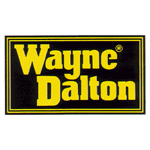
If your garage door suddenly starts making noise, won’t close properly, or feels off-track, it’s natural to ask: “Can I fix this myself?”
The short answer? It depends.
Some garage door issues are safe and easy for a homeowner to fix, while others can be dangerous without professional tools or experience. Knowing the difference can save you time, money, and keep you safe from potential injury.
What Types of Garage Door Repairs Are Safe to Do Yourself?
Here are a few common garage door issues that are typically DIY-friendly, especially if you’re comfortable with basic tools:
✅ Sensor Alignment
If your door won’t close, the issue may be with the photo-eye sensors. These are small safety devices near the base of the tracks. If they’re dirty or misaligned, the door won’t shut.
✅ Lubricating Moving Parts
A noisy or jerky garage door can often be silenced by applying a silicone-based lubricant to the rollers, hinges, and springs.
✅ Tightening Loose Hardware
Garage doors go through hundreds of open-close cycles yearly. Over time, nuts and bolts on the tracks and brackets loosen up. With the right wrench or socket, you can tighten these parts and restore smoother operation.
✅ Replacing Remote Batteries or Keypads
If your garage door opener suddenly stops responding, a dead battery is often the culprit. Swapping batteries or reprogramming the keypad are simple tasks that don’t require any special skills.
Want a more detailed walk-through of safe repairs you can do at home? Check out our guide on DIY Garage Door Repair.
When You Should NOT Attempt DIY Garage Door Repair
Not all problems should be handled without professional help. Some garage door components are under high tension, and tampering with them could result in serious injury.
❌ Broken Springs or Cables
Torsion springs and cables hold a tremendous amount of force. Attempting to fix or replace them on your own is dangerous and should only be done by trained technicians.
Additionally, if you’re sourcing parts, keep in mind that not all cables are built the same. For a closer look at the differences and why cable type matters, check out Are all garage door cables the same?.
❌ Garage Door Off Track
While a slightly misaligned door might seem fixable, a door that’s significantly off-track could collapse or cause further damage. This is best left to experts.
❌ Electrical or Opener Motor Issues
If your garage door opener isn’t working and it’s not the battery, it could be an issue with the motor, circuit board, or wiring. Diagnosing and fixing these components safely requires experience and tools most homeowners don’t have.
Pros and Cons of DIY Garage Door Repairs
| DIY Repairs | Professional Repairs |
| ✅ Save money on minor fixes | ✅ Safe and efficient for complex problems |
| ✅ Learn basic maintenance | ✅ Expert diagnosis to prevent future issues |
| ❌ Risk of injury with wrong tasks | ❌ Higher upfront cost |
| ❌ Potential to make problem worse | ✅ Warranty and peace of mind |
Tips Before You Start a DIY Garage Door Repair
- Unplug the opener before working
- Make use of a strong ladder and put on protective clothing
- Don’t force any part that feels stuck
- When in doubt, call a pro
Also, before attempting any repair involving cables, make sure you understand the type you’re dealing with. Cable tension and compatibility can vary widely depending on the door system. For an in-depth explanation of different cable types and safety tips, check out our guide on whether you can replace garage door cables yourself.
Final Takeaway
So, can you repair your garage door yourself?
Yes—but only for basic issues that don’t involve high-tension or electrical systems. For anything beyond routine maintenance, it’s safer and smarter to rely on an experienced professional.
If you’re in Queens, NY, and not sure what’s safe to fix or when to bring in help, the team at Garage Door Repair Queens is here to assist. We offer prompt, reliable service tailored to your needs—whether it’s a minor issue or a major repair.
👉 Call Garage Door Repair Queens for fast, expert service you can trust.
FAQs
1: Is it cheaper to fix a garage door myself?
Yes, for minor issues like sensor cleaning or lubrication. But for serious problems, a failed DIY attempt can cost more in the long run.
2: Are garage door springs really that dangerous?
Absolutely. Torsion springs are tightly wound and can cause serious injury or even death if released improperly.
3: What tools do I need for DIY garage door repair?
Typically, a socket wrench set, lubricant spray, screwdriver, and safety gear are enough for minor repairs.
4: Should I do garage door maintenance myself?
Yes! Tasks like cleaning, lubricating, and checking for loose parts are perfect for homeowners and can extend the life of your door.
5: When should I call a professional?
For anything involving springs, cables, opener motors, or structural damage, it’s best to contact a trusted local expert.













































